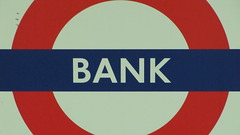

It's not as simple as walking in and asking for an account, though. Here are 5 things you should know about banking as an entrepreneur:
1. You Need an EIN to Open a Business Bank Account
At many banks, you can't open a business bank account unless you have an Employer Identification Number (EIN) issued by the IRS. Before you open a business bank account (and you should open one), apply for your EIN. It's free, and relatively painless to get an EIN from the IRS.
2. Keep Your Business Separate from Your Personal Expenses
While you might want to link your accounts to transfer money, you do need to make sure that you are keeping your business account separate from your personal account. Sometimes, that means that you need to plan the route of your money carefully. My money goes first into my business account, and then I “pay” myself by moving the money to the personal account.
Keeping your business expenses and personal expenses separate is extremely important, since it can help protect in a tax audit, and it clearly defines the difference between the business assets and your personal assets.
3. Your Business Needs to Establish Its Own Credit
If you plan to ask for a loan down the road, your business needs to be its own entity. This means that you need to establish credit as a business. You need to complete transactions with your business account. Find out if you can get a business credit card. In some cases your personal assets might be considered initially, but once you establish your business as its own entity, you will see some changes.
You might need to sign up with a business credit bureau like Dun & Bradstreet, or with the business side of major credit bureaus like Experian. When you work with vendors, provide the credit information for your business so that they can report your payment behaviors.
4. Consider “Interviewing” Potential Bank Prospects
In some cases, it can make sense to get to know someone at a local financial institution. Visit a few different banks and find out what business banking options are available. Make sure that you find out about fees that are charged, as well as minimum balance requirements, and other fine print items. There are plenty of free business checking accounts, so there is no reason to pay maintenance fees.
You should also ask about the possibility of financing for your business down the road. If you can establish a banking relationship with someone, including business checking and savings, and maybe a credit card, you might have a better chance of getting approved for a loan later.
5. Understand the SBA Loan Program Options
If you know that you will need financing for your business, look into the SBA loan program options available for your business. You might be surprised at what is possible for you to accomplish. Find out if the bank participates in SBA funding. Realize, though, that you will need to present a solid business plan, and be able to show your ability to repay the loan, even with SBA backing.



















